What a Man My Man Is may refer to:
- "What a Man My Man Is" (song), a 1974 single by Lynn Anderson
- What a Man My Man Is (album), a 1974 album by Lynn Anderson
What a Man My Man Is may refer to:
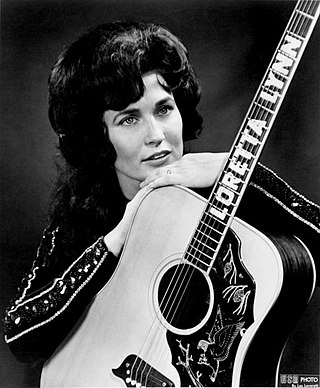
Loretta Lynn was an American country music singer and songwriter. In a career spanning six decades, Lynn released multiple gold albums. She had numerous hits such as "Hey Loretta", "The Pill", "Blue Kentucky Girl", "Love Is the Foundation", "You're Lookin' at Country", "You Ain't Woman Enough", "I'm a Honky Tonk Girl", "Don't Come Home A-Drinkin' ", "One's on the Way", "Fist City", and "Coal Miner's Daughter". The 1980 musical film Coal Miner's Daughter was based on her life.

Lynn René Anderson was an American country singer and television personality. Her crossover signature recording, "Rose Garden", was a number one hit internationally. She also charted five number one and 18 top-ten singles on the Billboard country songs chart. Anderson is regarded as one of country music's most significant performers.
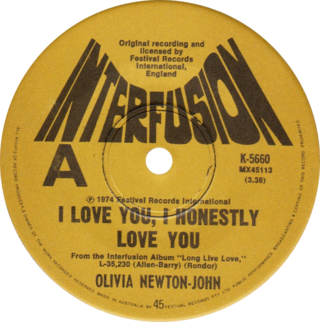
"I Honestly Love You" is a song recorded by Olivia Newton-John and released in 1974 on the album Long Live Love in the United Kingdom and If You Love Me, Let Me Know in the United States. The song became a worldwide pop hit, her first number-one single in the United States and Canada. The single was first released in Australia as "I Love You, I Honestly Love You", as per its chorus. The song was written by Jeff Barry and Australian singer and composer Peter Allen. The latter recorded it around the same time for his album Continental American.

Elizabeth Jane Anderson was an American country music singer-songwriter who was one in a wave of new-generation female vocalists in the genre during the 1960s to write and record her own songs on a regular basis. Writing in The New York Times Bill Friskics-Warren noted, "Like her contemporary Loretta Lynn, Ms. Anderson gave voice to female survivors; inhabiting their struggles in a soprano at times alluring, at times sassy."
"How Can I Unlove You" is the name of a No. 1 country hit by country music singer Lynn Anderson, released in 1971. "How Can I Unlove You" was written by Joe South, who had also written "(I Never Promised You a) Rose Garden". The song was produced by Anderson's husband at the time, Glenn Sutton, who had also produced "(I Never Promised You a) Rose Garden". The song was nominated for Best Country Vocal Performance, Female at the 1971 Grammy Awards.
"What a Man My Man Is" is the name of a No. 1 U.S. country music hit by Lynn Anderson, from 1974.
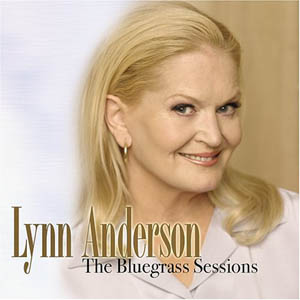
The Bluegrass Sessions is a bluegrass album by country musician Lynn Anderson, released in 2004.
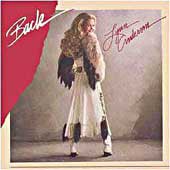
Back is the name of a 1983 studio album by country music singer Lynn Anderson.

Outlaw Is Just a State of Mind is the name of the 25th studio album by American country music singer Lynn Anderson, released in 1979.

I Love What Love Is Doin' to Me/He Ain't You is a studio album by the American musician Lynn Anderson, released 1977. The album featured three single releases for Anderson, the first being the title track which peaked at #22 on Billboard's Hot Country Singles. "He Ain't You" reached No. 19. The last single, "We Got Love" was a #26 entry in early 1978. The album peaked at #38 on Billboard's Country LP chart. The album also features covers of the recent pop hits, "Desperado," "Angel in Your Arms", and "Right Time of the Night".

What a Man My Man Is is a studio album by country singer Lynn Anderson, released in late 1974.

Smile for Me is a 1974 studio album by country music singer Lynn Anderson.
Smile for Me may refer to:
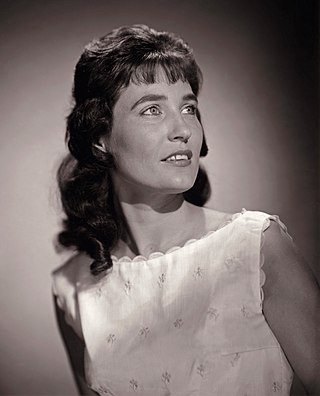
American country artist Loretta Lynn released 86 singles, two B-sides and 14 music videos. Her debut single was "I'm a Honky Tonk Girl" (1960) via Zero Records. Promoting the song with her husband by driving to each radio station, the effort paid off when it peaked at #14 on the Billboard Hot Country Songs chart. Arriving in Nashville, Tennessee, that year, she signed a recording contract with Decca Records. In 1962, "Success" reached the sixth position on the country songs chart, starting a series of top ten hits including "Wine Women and Song" and "Blue Kentucky Girl". She began collaborating with Ernest Tubb in 1964 and recorded four hit singles with him, including "Mr. and Mrs. Used to Be". Lynn's popularity greatly increased in 1966 when she began releasing her own compositions as singles. Among the first was "You Ain't Woman Enough " which reached the second position on the country songs list. She then reached the number one spot with "Don't Come Home A-Drinkin' " (1967). This was followed by "Fist City" (1968) and "Woman of the World " (1969).
Bobby Thompson was an American banjoist and guitarist. He worked as a session musician from the 1960s through 1980s. He recorded with Johnny Cash, Loretta Lynn, Neil Young, Perry Como, among others.

The albums discography of American country music artist Lynn Anderson contains 37 studio albums, 21 compilation albums, two live albums, two video albums and three extended plays. She signed her first recording contract in 1966 with Chart Records. The following year, her debut studio album entitled Ride, Ride, Ride was released on the label. It was her first album to debut on the Billboard Top Country Albums chart, peaking at number 25. Her second studio effort, Promises, Promises, was issued in December 1967 and spent 48 weeks on the country albums chart before peaking at number one. The Chart label issued four more studio albums by Anderson until 1970. This included 1969's Songs That Made Country Girls Famous, which was a tribute to female country artists.

The singles discography of American country music artist Lynn Anderson contains 72 singles, three promotional singles, one charting B-side, two music videos and nine other song appearances. She signed her first recording contract with Chart Records in 1966. The following year, her single "Ride, Ride, Ride" debuted on the Billboard Hot Country Singles chart. Also in 1967, her single "If I Kiss You " became her first major hit when it reached number five on the country singles chart. Anderson had a series of hits that reached the top ten and 20 during the 1960s including "Promises, Promises" (1969), "No Another Time" (1968), "Big Girls Don't Cry" (1968) and "That's a No No" (1969).
"Smile for Me" is a song written by Rory Bourke. It was recorded by American country music artist Lynn Anderson and released as a single in February 1974 via Columbia Records.

Lynn Anderson's Greatest Hits, Volume II is a compilation album by American country artist Lynn Anderson. It was released in September 1976 via Columbia Records and was produced by Glenn Sutton. It was Anderson's third compilation release for the Columbia label and second "greatest hits" package for the company. The album contained some of her biggest hits for the label in the 1970s.
"We Got Love" is a song written by Roy Culbertson, Harold Forness, Larry Keith and Steve Pippin. It was recorded by American country music artist Lynn Anderson and released as a single in 1977 via Columbia Records, becoming a hit the following year.